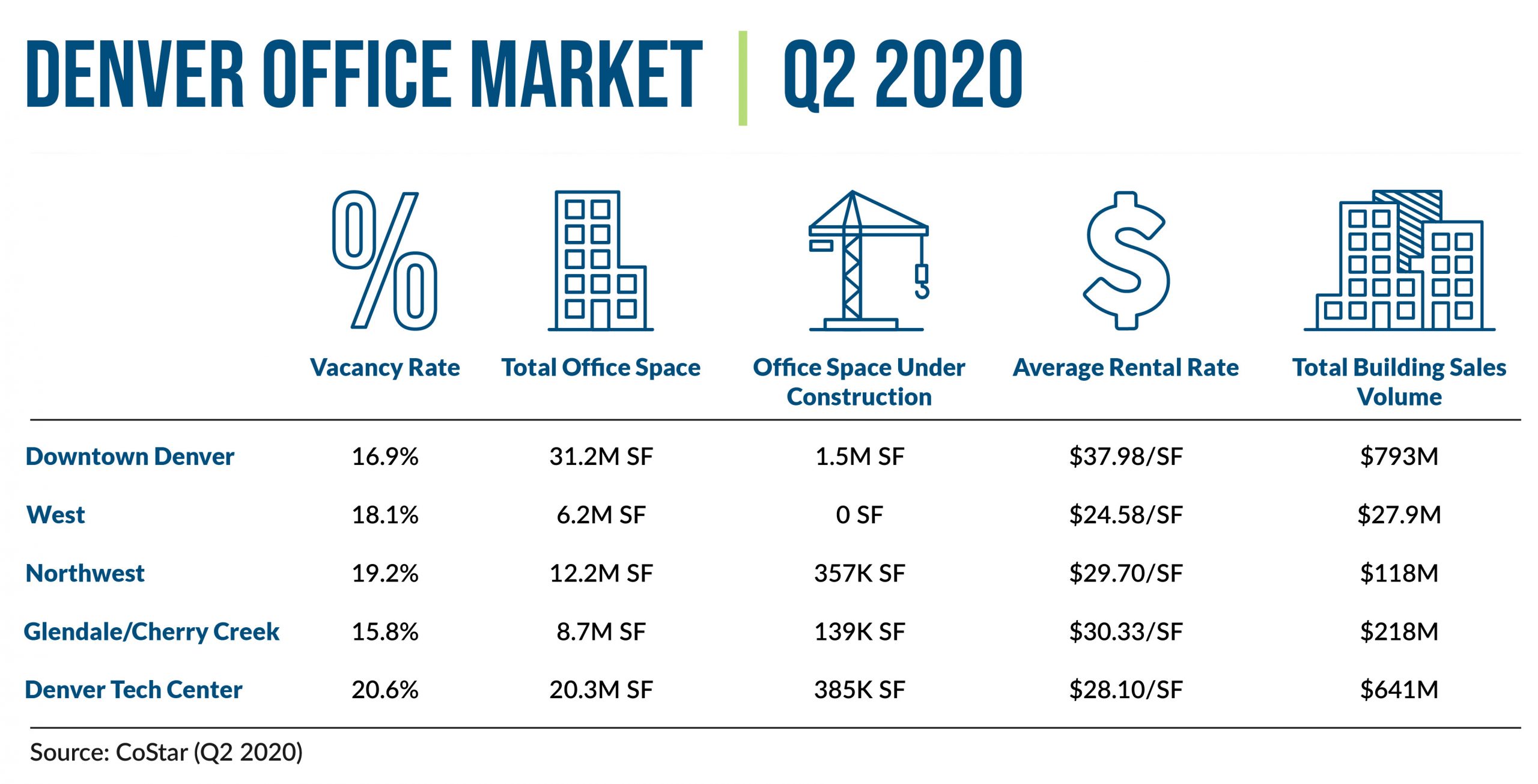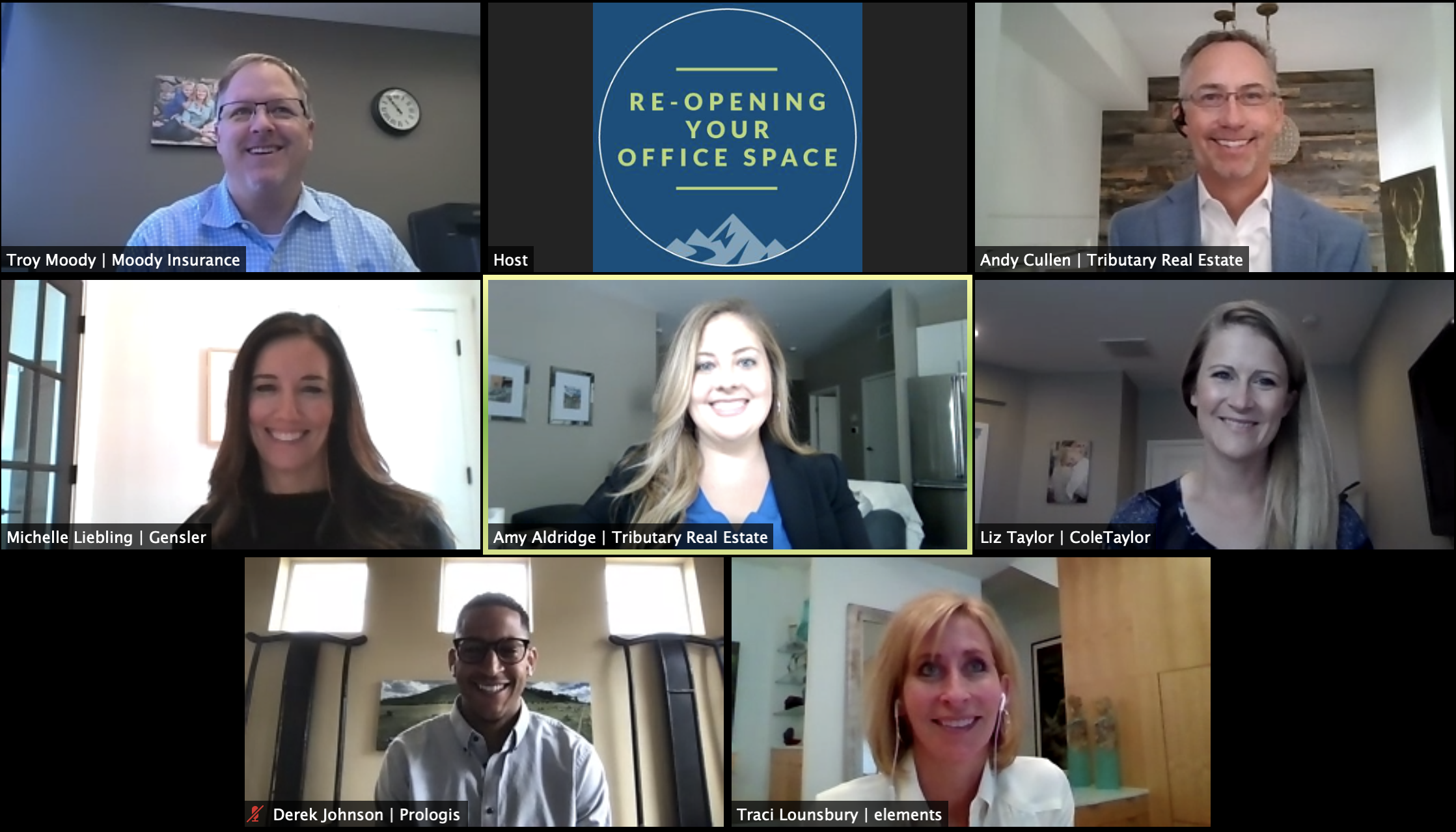Denver Office Market Update Q2 2020
Denver’s commercial real estate market entered Q2 2020 in a strong position, even as COVID-19 forced the majority of the state to shut down starting in mid-March. While Denver’s office landscape is starting to shift as companies re-evaluate their space needs, there is steady activity across the Denver metro area.
Here are some highlights of Denver’s commercial real estate activity in Q2 2020.

Downtown Denver
- The market continues to shift as 58 new subleases have hit the downtown market since April 1.
- Facebook announced plans to double the size of its office at 1900 16th St.
- Occidental Petroleum Corp. is looking to sublease six floors totaling 130,068 square feet at 1099 18th St.
- Dispatch Health raised $136M in Series C funding.
- A parking lot at 1300 Cherokee St. in the Golden Triangle sold for $6.7 million.
West Denver
- Bancroft acquired Union Terrace Building for $11,327,200 or $132.62/sf. The building was 86% leased at the time of the sale.
- Tap Rock Resources leased 23,000 sf at 523 Park Point Dr. in Genesee.
- Golden View Classical Academy acquired a 54,396-square-foot building at 601 Corporate Circle for $7,783,400 or $143.09/sf.
- Next Level Sports Performance acquired a 10,875-square-foot building at 4670 Table Mountain Dr. for $2,325,000 or $213.79/sf.
Northwest Denver
- Rowdy Mermaid, a kombucha startup in Boulder, raised $3.5M.
- Crocs opened its new headquarters at ATRIA in Broomfield.
- Office Evolution, a Louisville-based coworking franchisor, opened its 15thColorado location in Northglenn.
Colorado Blvd/Glendale/Cherry Creek
- The Citadel building in Cherry Creek sold for $33M.
- Former Inn at Cherry Creek announced plans to reopen next year as The Clayton.
- BMC Investments broke ground on a 6-story building in Cherry Creek, anchored by Equinox fitness club.
Denver Tech Center
- Vectra Bank submitted plans to build a nine-story HQ within Belleview Station.
- Boom Supersonic, a startup looking to build commercial supersonic jets, raised $3 million.
- The landlord of the six-story Tuscany Plaza in Greenwood Village sued Red Robin for unpaid rent.








